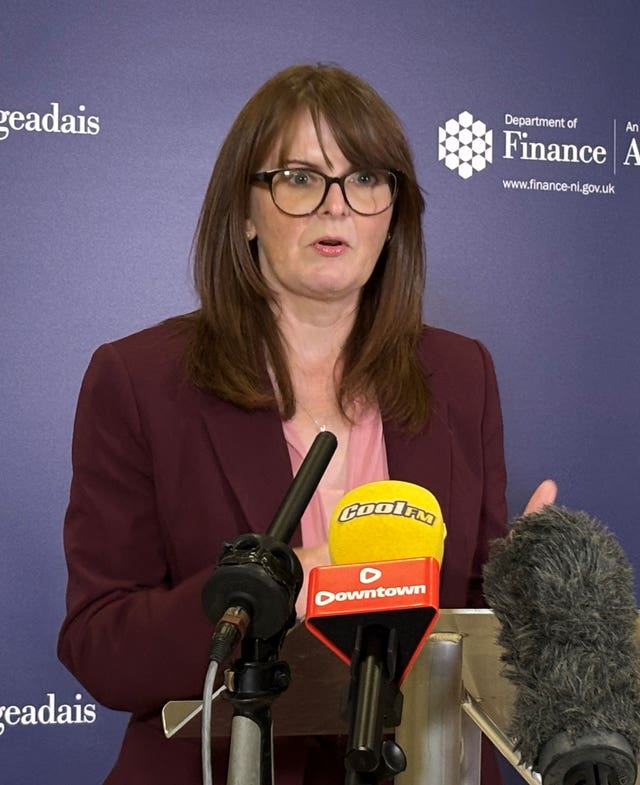Stormont ministers must ensure balanced budget is delivered, says Benn
The Northern Ireland Secretary said the scale of the budget package for the region presented the local administration with ‘significant opportunity’.

Executive ministers must now make decisions as to how to deliver a balanced budget this year, the Northern Ireland Secretary has said.
Hilary Benn emphasised the need for Stormont to avoid an overspend in 2024/25 as he insisted the additional funding directed to the Executive through Chancellor Rachel Reeves’s Budget had exceeded the expectations of the devolved administration in Belfast.
While the Executive was given an additional £640 million in Wednesday’s Budget through the Barnett formula used for distributing money to the devolved nations, Stormont’s Finance Minister Caoimhe Archibald said that still falls short of what the region needs.
The £640 million comprised £609 million in resource day-to-day funding and around £30 million in capital funding.

Stormont departments are currently overcommitted by £767 million on the resource side of their budget for this financial year, so the additional £609 million will not entirely cover the projected funding gap for 2024/25.
Ms Archibald has warned that failure to balance the Stormont budget by the end of the financial year would see the Government withdraw a previous offer to write off £559 million worth of debt owed to the Treasury.
The Treasury offer, made by the last government, to set aside the £559 million was conditional on the Executive delivering a balanced budget in 2024/25.
On a visit to Ballymena on Thursday, Mr Benn was asked about Ms Archibald’s contention that the Budget allocation did not go far enough.
“Well, I would be surprised if anyone said you’ve given us too much money,” he replied during his visit to the Wrightbus factory.
“The fact is it’s a very significant settlement. It’s good news for the people of Northern Ireland and it will help significantly with the financial challenges that the Executive is facing.
“But part of the deal that involved the restoration of the Executive was that a balanced budget will be produced this year.”
He noted the package that accompanied the return of powersharing in February also requires the Executive to raise an additional £113 million in revenues – a target it is on course to achieve – and to implement a range of reforms and efficiencies in regard to public service delivery.
“This is a significant opportunity for the Executive now, because I think there’s little doubt Caoimhe Archibald’s comments would suggest, well, they’ve got more money than they were anticipating.
“It now falls to the Executive to make those decisions about what spending priorities they’re going to agree, both for the remainder of this year to close the gap, which they’re committed to do as part of the deal, and what they’re going to do with the additional funds next year.”
The Barnett formula calculations for this year and next factor in a new interim funding model agreed between the Government and Stormont earlier this year, which means a 24% uplift is applied to any new money allocated to the region in recognition of greater levels of relative need in Northern Ireland compared with England.
On his visit to Ballymena, Mr Benn was also asked about the Budget’s planned increase to the inheritance tax liability on farm estates worth in excess of £1 million.
The move has been criticised by farming representative bodies, with several political parties in Northern Ireland also voicing concern.
Mr Benn said the measure would affect a “very small number” of farming estates.
“Secondly, even above £1 million, there would be a reduced rate of inheritance tax,” he said.
“Instead of the normal 40% it would be reduced by 50% so it would be at 20% and people would have 10 years to pay it off. That’s really important to remember that.
“Thirdly, of course, spouses can pass their assets between each other if one of the partners dies, without any inheritance tax being paid at all.
“And the last point I would make, if you want to go back in history, prior to 1992 the inheritance tax regime for farms was less generous – not a lot of people remember this – but was less generous than the new system that will apply as a result of what was announced in the Budget.”





